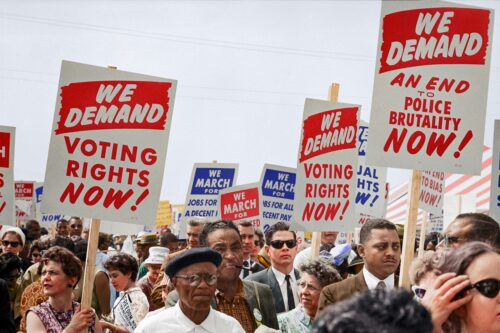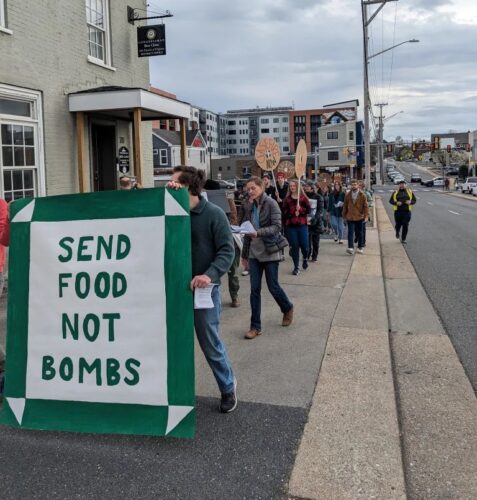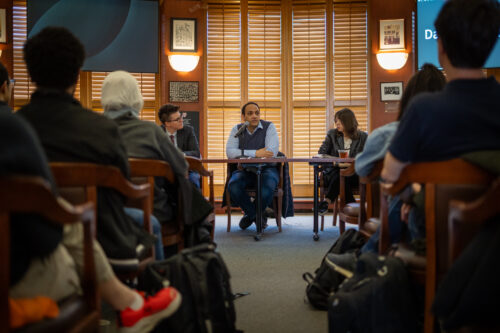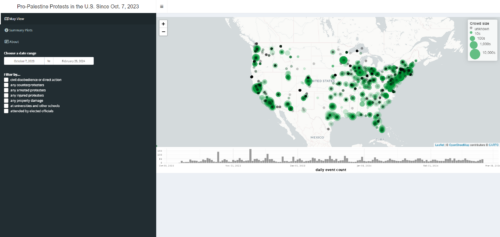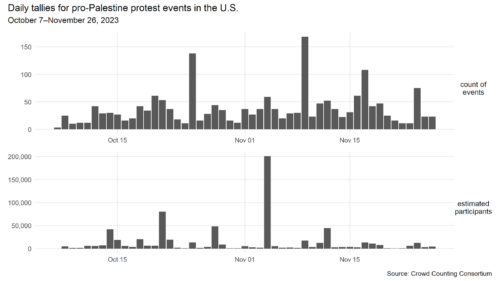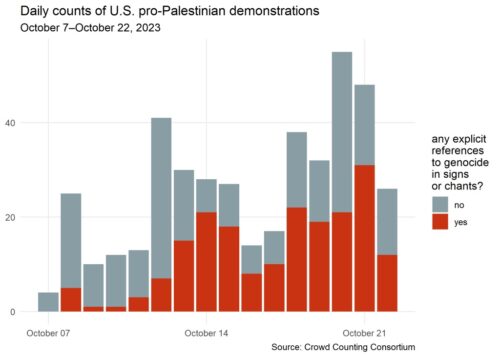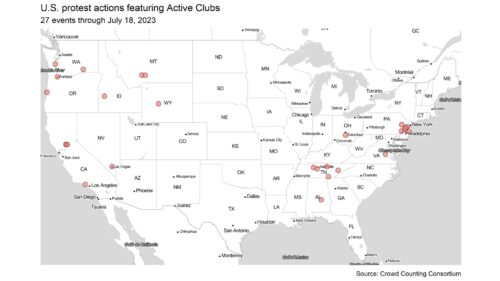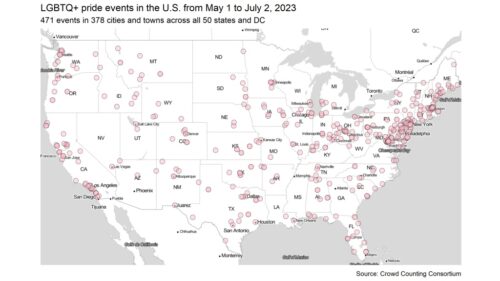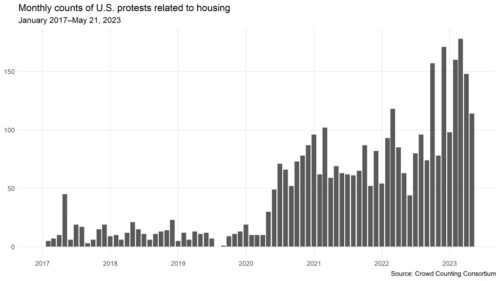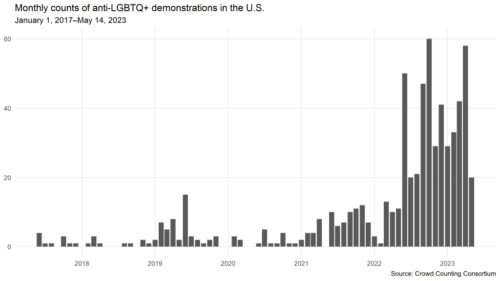
Erica Chenoweth
Frank Stanton Professor of the First Amendment
Protest is the bedrock of democracy. But why do people take to the streets, and how do protestors achieve change? At the Ash Center, we’re working to answer these questions.
From the Boston Tea Party and the U.S. civil rights movement to contemporary climate action demonstrations, civil protest is a fundamental tool for influencing political change. While protest movements are an indelible part of contemporary political life, little is often understood about what motivates people to take to the streets and how they achieve nonviolent political goals.
Our scholars analyze protest movements, learn from protestors themselves, and develop tools to help understand why some protests succeed and others fail.
Frank Stanton Professor of the First Amendment
Lecturer in Public Policy
Assistant Professor of Public Policy
Podcast
Host Jay Ulfelder sits down with Professor Erica Chenoweth for the first episode in the new podcast series.
Commentary
The imminent famine in Gaza shows up in Crowd Counting Consortium (CCC) data as a sharp increase in references to hunger and starvation in protesters’ chants and signs.
Video
Panelists from the Nonviolent Action Lab discuss their experiences, lessons learned, and perspectives on their respective struggles, nations, and roles have evolved during their time at Harvard.
Commentary
To make it easier to find up-to-date information on pro-Palestine and pro-Israel protest activity in the United States since October 7, 2023, the Crowd Counting Consotium recently created a pair of interactive data dashboards separately covering the two.
Video
On Tuesday, December 5th, 2023, experts from the Crowd Counting Consortium, a network of researchers tracking political demonstrations across the U.S., shared their most recent data on the multitude of pro-Israeli and pro-Palestinian protests held nationwide since October 7.
Commentary
Since October 7, the Crowd Counting Consortium (CCC) has recorded nearly 2,300 U.S. protests, rallies, marches, caravans, demonstrations, vigils, banner drops, and direct actions in support of Palestine or Israel, with hundreds of thousands of total participants on different sides of this mass mobilization.
Commentary
Over the past few weeks, the burst of pro-Palestine protests, rallies, demonstrations, vigils, and direct actions in the U.S. that followed Hamas’ October 7th attacks on Israel and Israel’s military response to them has swelled into a sustained wave that is almost certainly broader and larger than any previous pro-Palestine protest wave in U.S. history.
Commentary
Over the past 10 days, the wave of U.S. street activism supporting Palestine has accelerated. Since October 7, 2023, when Palestinian militants launched attacks on Israel that killed more than 1,400 people, CCC has logged 420 pro-Palestine rallies, protests, demonstrations, and vigils in more than 180 different cities and towns across 46 states, the District of Columbia, Puerto Rico, and Guam.
Commentary
Since the October 7 attacks on Israel, the U.S. has seen hundreds of vigils, rallies, demonstrations, and protests in response to those attacks and the political and military reactions to them.
Commentary
Commentary
In a new article for The Conversation, Bruce Schneier and Nathan Sanders highlight some of the reasons to feel skeptical towards AI.
Q+A
In a new study, Erica Chenoweth and Zoe Marks examine youth and LGBTQ+ nonviolent protest participation rates and the impact they might be having on evolving patterns of civil resistance around the world.
Commentary
After a year that saw historic levels of anti-LGBTQ+ protest activity, legislative action, and online jawboning, millions of people turned out in May and June 2023 for hundreds of LGBTQ+ pride celebrations across all 50 U.S. states and the District of Columbia.
Commentary
On Saturday, May 20, 2023, more than 1,000 tenants, union members, community organizers, and politicians gathered at Cadman Plaza in the rain and then marched across the Brooklyn Bridge to call for lower rents in New York City and the passage of state legislation to protect tenants from eviction without good cause.
Commentary
In late 2022, I guessed that the surge in anti-LGBTQ+ right-wing protests we saw in the summer and fall of last year would ebb after the elections.
